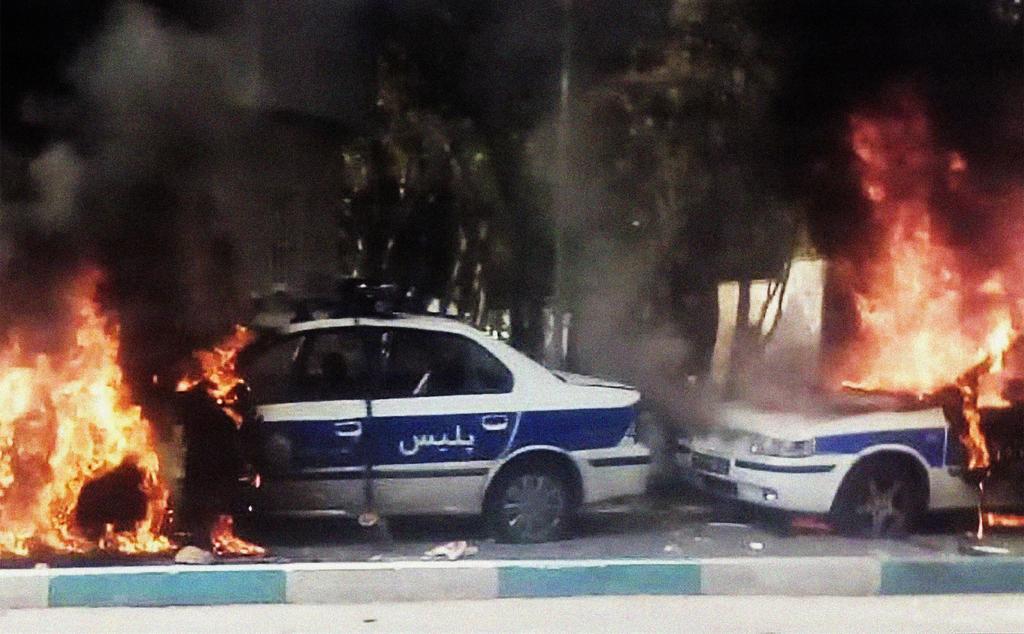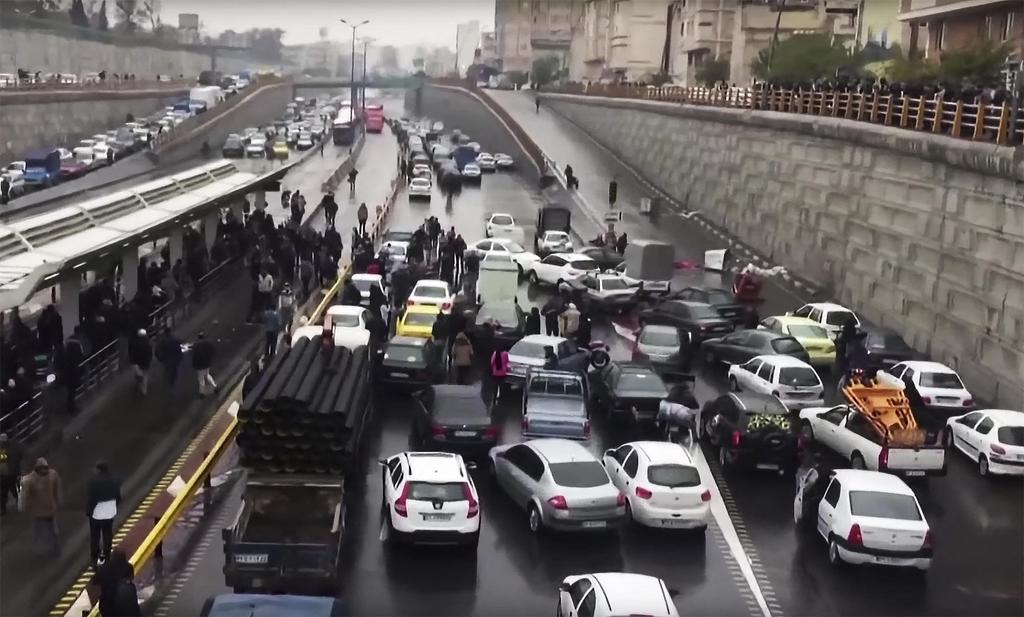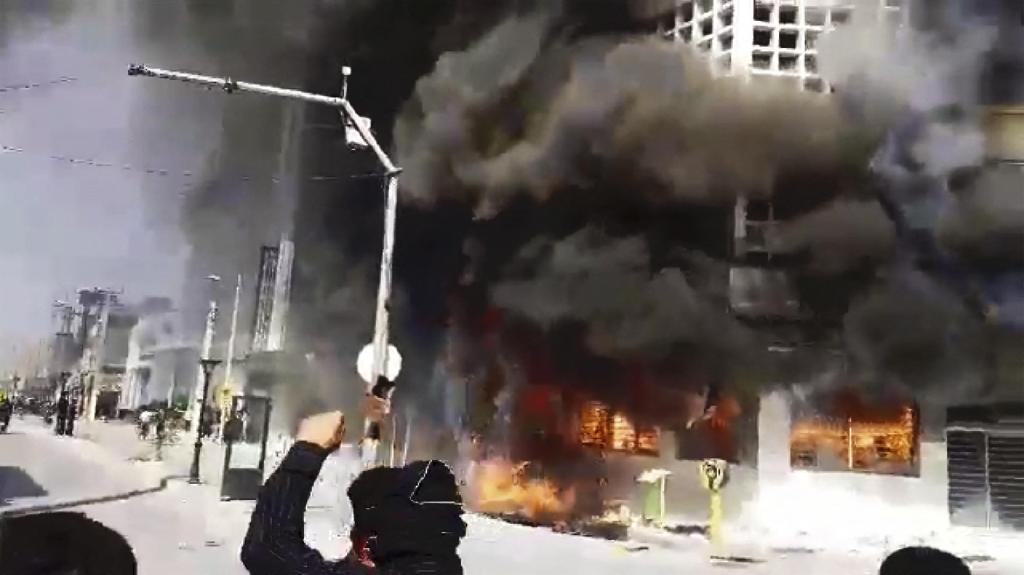Getting your Trinity Audio player ready...
DUBAI - Iran's powerful Revolutionary Guards warned anti-government protesters of "decisive" action if unrest over gasoline price hikes do not cease, state media said, in a hint that a harsh security crackdown could be on the cards.
The protests have spread across the Islamic Republic since Friday, turning political with demonstrators demanding that top clerical leaders step down. At least 100 banks and dozens of buildings and cars have been torched, state media reported.
3 View gallery


Iranian protesters set fire to police cars during a demonstration against an increase in gasoline prices in Tehran, Nov. 16, 2019
(Photo: MCT)
The scale of the unrest triggered by announcements of fuel rationing and price rises of at least 50 percent remains unclear as authorities have curbed Internet access to stop the use of social media to organize rallies and disseminate videos.
But it appears to be the most serious unrest since late 2017 when 22 people were reported to have killed in dozens of cities and towns in protests over poor living standards, with some calling on top figures in the Shi'ite Muslim elite to resign.
President Hassan Rouhani's government said the gasoline price rises were intended to raise around $2.55 billion a year for extra subsidies to 18 million families - or roughly 60 million Iranians on low incomes.
But many ordinary Iranians angry and in despair over reimposed U.S. sanctions that have helped undermine the government's promises of more jobs and investment, and authorities are anxious to end the unrest.
"If necessary we will take decisive and revolutionary action against any continued moves to disturb the people's peace and security," the Revolutionary Guards, Iran's heavily armed main security force, said in a statement carried by state media.
3 View gallery


Iranian protesters block a road during a demonstration in Tehran against an increase in gasoline prices, Nov. 16, 2019
(Photo: MCT )
Supreme Leader Ayatollah Ali Khamenei on Sunday blamed the turmoil on Iran's opponents and foreign foes, denouncing protesters who attacked public property as "thugs" and "hooligans."
Some Iranians managed to post social media videos that showed police firing tear gas to disperse protesters. The images could not be verified by Reuters. Authorities said one policeman and a civilian had been killed and 1,000 "rioters" arrested.
3 View gallery


Iranian protesters set fire to a bank in Bahbahan, southwest Iran during a demonstration against an increase in gasoline prices
(Photo: MCT )
"Rioters used knives and guns...A number of security agents and policemen were killed or taken hostage," government spokesman Ali Rabiei told a televised news conference.
The struggle of ordinary Iranians to make ends meet became even harder last year when President Donald Trump withdrew the United States from Tehran's nuclear deal with world powers and reimposed sanctions that had been lifted under the accord.
Frustration has grown over a sharp devaluation of Iran's rial currency as well as spikes in the prices of bread, rice and other staples since Washington began to apply "maximum pressure" on Iran to make tougher nuclear and security concessions.
Many in oil-producing Iran see cheap gasoline as a fundamental right and the price hike sparked worries about a further squeeze on living costs, despite state assurances that the revenue raised would be put to assisting needy families.
First published: 14:53, 11.18.19

